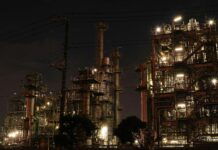
Job Performer Interview Questions at ADNOC
1. Technical Proficiency
Question 1: Can you provide examples of specific technical skills you possess that are directly applicable to the energy sector?
Sample Answer: “Certainly. I have a strong background in mechanical engineering, with expertise in operating and maintaining various machinery commonly used in the energy sector. My experience includes working with complex systems such as pumps, compressors, and turbines. Additionally, I am proficient in utilizing industry-specific software for data analysis and troubleshooting.”
Question 2: Describe a challenging technical problem you’ve encountered in your previous role. How did you approach and solve it?
Sample Answer: “In my previous role, we faced a sudden equipment malfunction that jeopardized our production schedule. I conducted a thorough analysis, identified the root cause, and implemented a temporary fix to ensure minimal downtime. Simultaneously, I collaborated with our maintenance team to implement a permanent solution, which involved redesigning a critical component. This experience showcased my ability to handle high-pressure situations and contribute to effective problem resolution.”
2. Safety and Compliance
Question 3: How do you prioritize safety in your work, especially in a high-risk environment like the energy sector?
Sample Answer: “Safety is my top priority. I consistently adhere to all safety protocols and encourage a culture of vigilance among my colleagues. I participate in regular safety training sessions and ensure that everyone on the team is aware of potential hazards. In my previous role, I initiated weekly safety briefings, fostering a proactive approach to identifying and addressing safety concerns.”
Question 4: Can you share an experience where you had to ensure compliance with safety protocols, and how did you handle it?
Sample Answer: “In a previous project, I noticed a deviation from safety protocols during a routine inspection. I immediately reported the issue to the supervisor, halted operations temporarily, and worked with the team to rectify the situation. This proactive approach not only ensured compliance but also prevented potential risks. It highlights my commitment to maintaining a safe working environment.”
3. Educational Background and Training
Question 5: How does your educational background contribute to your suitability for a role as a job performer in the energy industry?
Sample Answer: “My degree in electrical engineering provides a strong foundation for understanding the intricate systems and processes in the energy industry. The coursework equipped me with in-depth knowledge of electrical systems, automation, and control processes. Additionally, I have pursued relevant certifications, including advanced training in programmable logic controllers (PLCs) and safety systems.”
Question 6: Have you undergone any specialized training relevant to the energy sector, and how has it benefited your professional development?
Sample Answer: “Yes, I recently completed a certification in predictive maintenance techniques specific to the energy sector. This training has enhanced my ability to anticipate equipment failures, leading to improved reliability and reduced downtime. It has also given me a deeper understanding of the latest technologies, ensuring that I stay at the forefront of industry advancements.”
4. On-the-Job Experience
Question 7: Provide examples of your on-the-job experience that demonstrate your ability to handle the day-to-day responsibilities of a job performer.
Sample Answer: “In my previous role as a job performer, I was responsible for overseeing the daily operations of a crucial production unit. This included conducting routine equipment inspections, performing preventive maintenance, and troubleshooting any operational issues. I consistently met production targets and contributed to a 15% improvement in overall equipment efficiency.”
Question 8: How do you stay updated on the latest industry trends and technologies relevant to your role?
Sample Answer: “I am proactive in staying informed about industry trends and technological advancements. I regularly attend industry conferences, participate in webinars, and subscribe to relevant publications. Additionally, I am an active member of online forums and communities where professionals in the energy sector discuss emerging technologies and share best practices.”
5. Adaptability and Problem-Solving
Question 9: Describe a situation where you had to adapt quickly to changes in your work environment. How did you manage the transition?
Sample Answer: “In a previous project, unexpected changes in project scope required a rapid adjustment to our workflow. I quickly assessed the situation, reorganized priorities, and communicated effectively with the team to ensure a seamless transition. This adaptability allowed us to meet project deadlines despite the unexpected challenges.”
Question 10: Can you share an example of a complex problem you faced at work and the steps you took to solve it?
Sample Answer: “A complex problem I encountered was a recurring issue with a critical component affecting production efficiency. I initiated a root cause analysis, collaborated with cross-functional teams, and implemented a comprehensive solution that involved redesigning the component. This not only resolved the immediate problem but also led to a 20% improvement in overall equipment reliability.”
6. Communication Skills
Question 11: How do you communicate technical information to colleagues who may not have the same level of expertise?
Sample Answer: “I believe in simplifying technical information to make it accessible to everyone on the team. I use clear and concise language, visual aids when necessary, and encourage open communication. In my previous role, I conducted regular knowledge-sharing sessions to ensure that all team members had a basic understanding of the technical aspects of our work.”
Question 12: Share an experience where effective communication played a crucial role in the success of a project.
Sample Answer: “In a collaborative project, effective communication was essential due to the diverse backgrounds of team members. I established regular communication channels, encouraged feedback, and facilitated open discussions. This approach fostered a positive team dynamic, resulting in successful project completion ahead of schedule.”
7. Commitment to Excellence
Question 13: How do you ensure the quality and accuracy of your work in a fast-paced and demanding industry like energy?
Sample Answer: “Maintaining high-quality work is a non-negotiable aspect of my approach. I prioritize attention to detail, conduct thorough inspections, and follow established procedures. Additionally, I actively seek feedback from colleagues and supervisors to continuously improve my work and contribute to overall process efficiency.”
Question 14: Describe a situation where your commitment to excellence positively impacted the outcome of a project.
Sample Answer: “In a critical project, my commitment to excellence was evident in implementing a rigorous quality control process. This resulted in the identification of potential issues before they escalated, ensuring that the project was completed with the highest standards of quality. The success of the project showcased the importance of meticulous attention to detail.”
8. Teamwork and Collaboration
Question 15: How do you contribute to a positive team environment, and how do you handle conflicts within a team?
Sample Answer: “I contribute to a positive team environment by fostering open communication, recognizing individual strengths, and encouraging collaboration. In instances of conflicts, I address issues directly, promote active listening, and work towards finding mutually beneficial solutions. Resolving conflicts promptly ensures a cohesive team dynamic and maintains productivity.”
Question 16: Share an example of a successful collaboration with colleagues on a project.
Sample Answer: “In a recent project, I collaborated with colleagues from different departments to streamline our maintenance processes. We conducted cross-functional workshops, shared insights, and implemented a more efficient workflow. This collaboration resulted in a 25% reduction in downtime and enhanced overall equipment reliability, highlighting the effectiveness of teamwork.”
OSHA Oil and Gas Certification
Importance of Safety in the Oil and Gas Industry
























